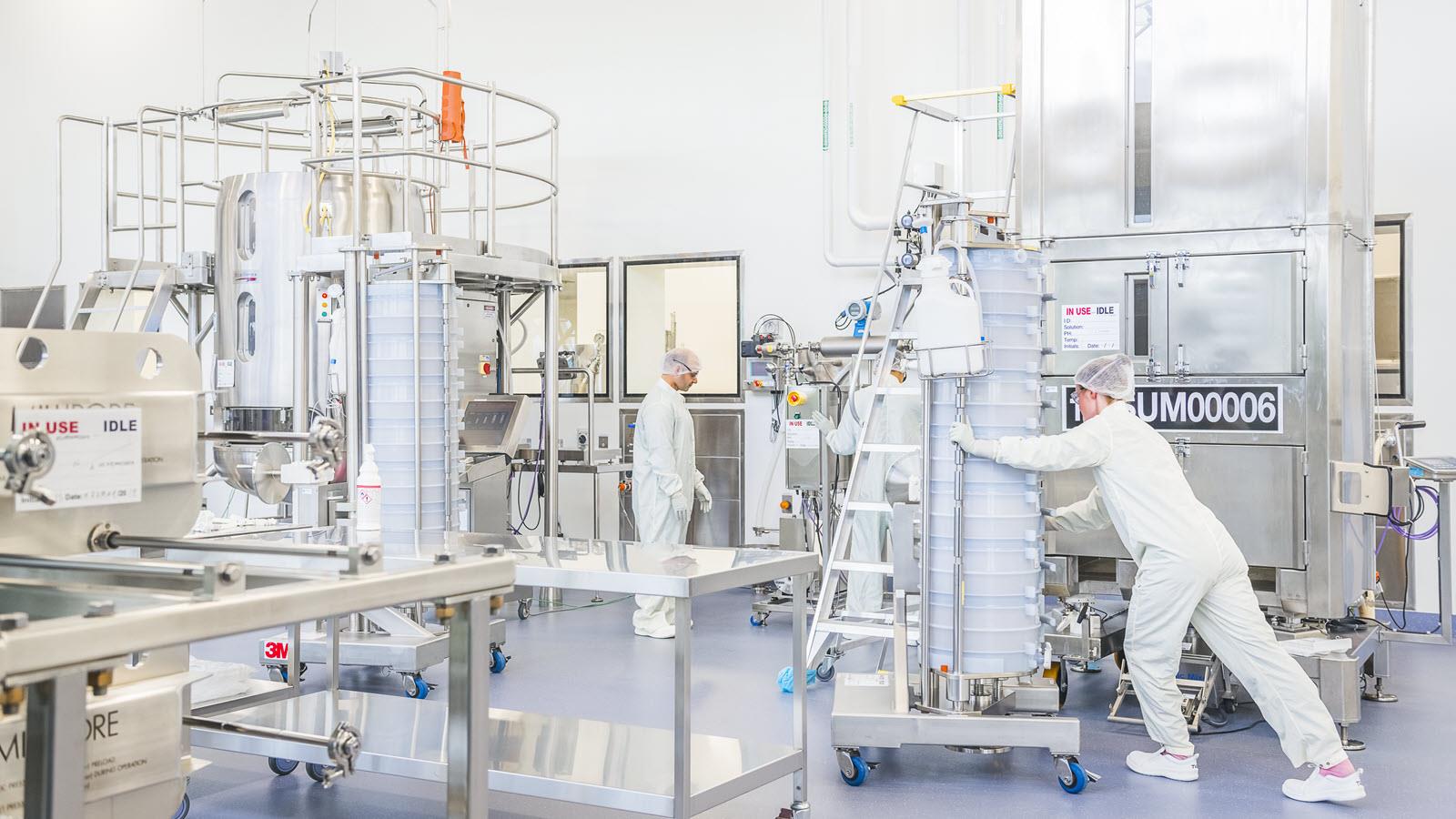A CSL Behring biotech manufacturing facility in Australia has started to manufacture a potential COVID-19 vaccine from the University of Oxford and AstraZeneca. The vaccine candidate is being produced alongside an ongoing clinical trial.
Early production means that if the vaccine is proven safe and effective, doses will be ready as soon as regulatory approvals are met. Two doses are expected to be required and trial results are expected by year’s end.
CSL, which has a long history in Australia, includes the businesses CSL Behring, a rare disease biotech, and Seqirus, one of the world’s leading producers of flu vaccine with production facilities around the globe. CSL has separate contracts with AstraZeneca and the Australian government to manufacture doses of the AZD1222 vaccine candidate for the Australian population, with first doses planned for release in the first half of 2021, pending the outcome of clinical trials and regulatory approval.
Meanwhile, CSL has already begun manufacture of another COVID-19 candidate known as UQ-CSL V451, developed with the University of Queensland in Australia. That vaccine is currently in a Phase 1 clinical trial and doses will be held pending the results, with plans to manufacture more, if needed.
“There’s still a long way to go and our first priority resolutely remains the safety and efficacy of the vaccines we produce,” CSL Chief Scientific Officer Andrew Nash said. He said the company was producing both vaccines in parallel with the clinical trials “in recognition of the significant urgency of the COVID-19 pandemic.”
One of a number of COVID-19 vaccine candidates, AstraZeneca’s joint effort with the University of Oxford uses a replication-deficient chimpanzee viral vector based on a weakened version of a common cold virus (adenovirus) that causes infections in chimpanzees and contains the genetic material of the SARS-CoV-2 virus spike protein.
Technical experts within CSL and AstraZeneca worked closely to reach this milestone. The vaccine will not be released for use until the trial and manufacturing data are approved by the Australian government regulatory agency, the Therapeutic Goods Administration (TGA).
The Australian government has provided support to CSL to augment its ability to manufacture the AZD1222 vaccine, which requires the use of a live adenovirus. The support enabled the acquisition of specialized equipment and production inputs, recruitment, training and redeployment of dozens of production personnel and reconfiguring of air handling and other structural changes to the manufacturing facility. While taking on this task, the company will continue to maintain its commitments to produce core biotherapies for people with rare and chronic diseases.



